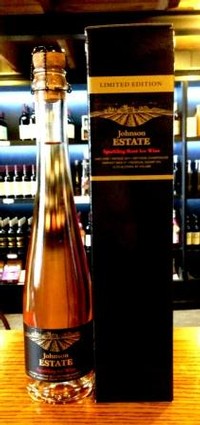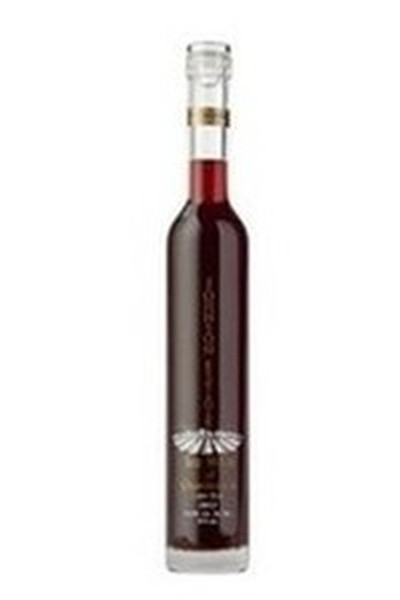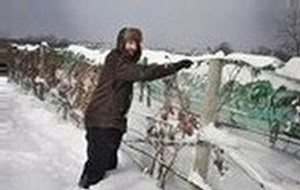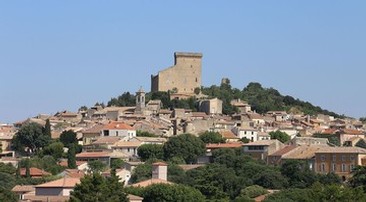Blog
The Second

On February 3, we were able to harvest some Vidal Blanc ice wine grapes, which had been netted in the fall. While farm staff harvested the Chambourcin on Boxing Day, December 26th, the Vidal was left for the next cold spell.....which finally came on February 3rd.
J
98 Points! Read All About It
Just Released: Results for 2019 International Eastern Wine Competition, Santa Rosa, California:
Our 2017 Chambourcin Ice Wine was just voted best “Best of Show”, "Best of Class”, and Best of Dessert/Late Harvest. Yes, that means that the Competition's group of wine judges, who come from around the world, voted unanimously to award this wine these accolades. This garnet-colored red ice wine, which pairs famously with any dark chocolate, was also awarded 98 points. And yes, this is a score out of a possible 100 points - in which the judges are assessing all of the elements of the wine, including color, aromas, acidity, balance, and flavors which contribute to overall drinkability. Johnson Estate's team is delighted with this recognition!


Winemaker, Jeff Murphy - 2017 Chambourcin Ice Wine Harvest, December 2017
Here are eight other Johnson Estate Winery GOLD medal winners at this Competition:
- Founder’s Red 90 points
A fruit forward, full-bodied dry red wine. - Ives 92 Points
Concord grape's first cousin, a sweet and grapey red wine. - Vidal Blanc Ice Wine 93 Points
The traditional grape for ice wines, honey and peach flavors. - Niagara 93 Points
A semi-sweet American Heirloom white wine. - Seyval Blanc 94 Points
A dry, crisp, lightly tropical white wine. - Concord 95 Points
All-American Heirloom red, semi-sweet wine. - House Red 95 Points
Our version of your favorite grandfather’s basement sweet wine. - Marechal Foch 96 Points
Our tasting room's 2018 best-seller; rich, silky, off-dry red wine.
Update on Estate Rose
We’d rather ship ‘18 Pinot for now because the ‘19 could use a few weeks to settle down in the bottle and lose a little of the astringency in its finish while the ‘18 will eventually transition from “soft” to flat. However we might consider some kind of promo where you buy both and compare them yourself.
Jeff and I just did a room temperature taste comparison between these two.
‘18 is smoother, softer with nice finish and fresh fruit aromas.
‘19 has same aroma but brighter and more pronounced. It has a crisper finish.
Both nicely balanced and tasty through the middle.
‘19 has pink glass cork; ‘18 has clear.
‘19 has bright, light pink color; ‘18 the same but with warm salmon highlights.
Winemakers from Western New York Visiting Chateauneuf-du-Pape

Winemakers, Jeff Murphy (Johnson Estate) & Sam Sheehy (Winery of Ellicotville)
History:
After attending a trade show in Montpellier, we travelled to Avignon, the small French town set upon a hill in southern portion of the Rhone Valley where the “Pope’s New Castle” was built in the thirteenth century. It housed eight popes over the course of 70+ years before the Pope moved back to Rome. But it was the popes of the era who first encouraged the growing of grapes and the production of “vin du Pape” in the nearby countryside. Chateauneuf du Pape, where we traveled during much of our visit to France, is one medieval village located near vineyards, some of which are over 100 years old.
Appellation:
The Appellation d’Origine Controlée for Chateauneuf du Pape was established in 1936 and fifteen varieties of grapes are allowed to be planted in the appellation. Grapes must be hand-picked to make the approved appellation wines (sometimes with stems, sometimes not). Today the area with roughly 6,000 acres of vineyards has about 250 growers/wineries. Grenache is by far the most popular grape variety planted in the region (roughly 75-80%), along with Mourvedre, Cinsault, and Syrah. –In old vineyards, these varieties might be mixed to provide field blends, but today are often used to blend the famous red fruity, lush wines of the region which are very drinkable young and may also be successfully cellared. Only five percent of the region’s production is white wines – from Roussane and Grenache Gris – but these more rare white wines were some of the most interesting which we sampled during on our visits to several of the regions wineries.
Terroir:
We use the word “terroir” to describe a wine region’s climate, geology, and wine culture. Most of the wineries we visited had educational “displays” of the terroir of the region, illustrating the importance of terroir and the differences amongst the wineries in the Rhone Valley Yes, in sometimes cases, the displays were very elaborate set-ups in which a winery would display “dirt” - the soil, sand, clay, and stones/pebbles characteristic of different vineyards. Old vineyards were a source of pride and are pruned very short to protect them from the “mistral winds” which are an integral part of the region’s terroir – which is otherwise features sunny, hot, dry Mediterranean summers and mild winters. BUT, we will say that during our visit, that the region had its first snow in ten years! It was not what we were expecting!
We were very impressed with the size and quantity of the concrete tanks we saw in this region. Fermentation occurs in these tanks as well as in stainless steel ones. And aging, of course, done in large even giant, French oak barrels.
Food:
Cheese and sausage!!! Every meal, it seemed, came with a cheese and charcuterie board, with soft cheeses, like Brie, predominating.